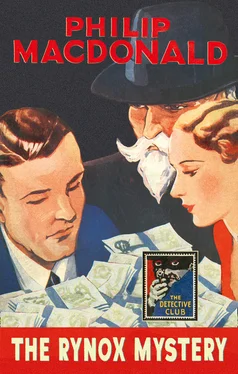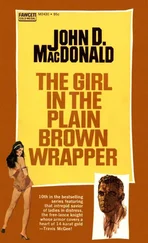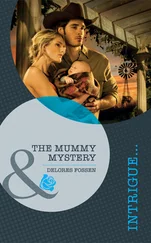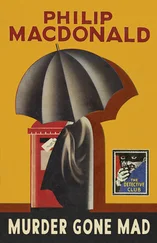The Rasp was my third novel. It was also my first detective story, fn3and long before I’d finished it I was determined it should be my last. Conceived during a decade which was a Whodunit heyday, a time when it seemed that everyone in the storytelling business was trying his hand at the form, it was begun in a burst of youthful egotism, to show the world not only that I could do this too, but that I could do it better!
However, by the time I’d finished it I wasn’t at all sure that I was showing anybody anything. All I knew was that this was hard, hard work; I had discovered that if the writer of romans policiers believes (as I think he has to) that his books should be novels as well as puzzles; that they must, always, be literate and credible as well as scrupulously fair to the reader , the writing of them is pure self-torture!
But—well, The Rasp made quite a splash when it came out, first in England and later in the US. †And I’m still torturing myself for a living, nowadays not only between book covers but also in the dramatic forms of film and television. Although I have, at various and several times, sought relief quite successfully in telling other sorts of story, I seem always to come masochistically back to the sweat and the frustration, the challenge and the agony, of working at what John Dickson Carr has called ‘the greatest game of all’. And it might be worth noting that, when I do, I frequently use as my chief instrument a character (Anthony Gethryn) whom I never imagined, when I tucked him tidily away in matrimony at the end of The Rasp , would ever show his inquisitive and somewhat supercilious nose again …
Now for Murder Gone Mad . This was my third or fourth detective novel, and is a very different cup of tea from the first. An attempt to break away from the then accepted, and terribly confining, limits of the pure Whodunit (blunt-instrumented corpse in copse or library—eight suspects—least likely murderer) it was suggested by the macabre but very real-life exploits of the greatest mass murderer of the century, the monster of Düsseldorf.
I’m not sure of my memory on this point, but I think I started the book with the idea that, as well as being a departure from the straight Whodunit form, it would also be easier to write. If I did think this, I was sadly mistaken. It was, in its own demonic way, every bit as tough to do. Because, after all, when the author (or policeman, if it comes to that) is faced with a clever and careful and motiveless killer, how does he set about uncovering him?
But the book got finished somehow and was very well received, fn4so I suppose I did all right by the theme, which is, after all, timeless. An interesting point, however, did occur to me while I was going over it; a point which might be worth some elaboration.
It concerns the present-day preoccupation with the psyche and all its widely bandied but only dimly understood -iatrys and - opaths and -ologies. If I were to be writing this book today, I believe I would feel bound to probe at length into the subconscious past of the murderer (in search, so to speak, of the psora and trauma of that dark district) so that I could eventually reveal that the whole trouble was caused by the fact that, at an early age, this unfortunate homicidal maniac (like the character in Cold Comfort Farm ) had seen something nasty in the woodshed.
But, in the days when I did write Murder Gone Mad I felt no such compulsion. It was enough, then, that the murderer was mentally unhinged; that the murderer was killing without sane motive; that the murderer was eventually caught …
That was the way we used to do it—and I’m not at all sure we weren’t right …
This leaves Rynox . As I have already intimated, it is a much lighter book than the others; lighter in every way. Writing it was really a sort of busman’s holiday; and, at the time, I almost had fun working on it, particularly since it satirized several persons and institutions in the London of that time—
I have just caught myself wondering whether the satire, unrecognizable here and now, was the only reason for the book doing as well as it did. And this means, I fear, that I’m back with my conditioned reflexes and had better stop, before I start saying, ‘It isn’t good enough for me to have written,’ and thereby open the door temptingly wide for any critic who might feel like adding the words, ‘or anyone else’ …
PHILIP MACDONALD
in Three for Midnight , 1963
EPILOGUE
1
GEORGE surveyed the Crickford’s man and the package with pompous disapproval.
‘Bringing a thing like that to the front!’ said George. ‘Oughter know better. If you take your van down Tagger’s Lane at the side there, you’ll find our back entrance.’
George may have been impressive; was, indeed, to a great many people. But the vanman was not impressed. He evidently cared little for George’s bottle-green cloth and gilt braid; less for George’s fiercely-waxed moustache, or George’s chest, medals or no medals.
‘This unprintable lot,’ said the vanman, ‘’as got this ’ere obscene label on it. My job ain’t to stand ’ere chewin’ the unsavoury rag with any o’ you scoutmasters! My job’s to deliver. Are you or are you not medically goin’ to take unclean delivery?’
The normal purple of George’s cheeks turned slowly to a rich black. George could not speak.
‘If you don’t,’ said the vanman, ‘gory well ’urry, off we go with the lot.’ He stooped and looked at the label. ‘And it’s addressed to one of your big noises … F. MacDowell Salisbury, Ess quire. President: Naval, Military and Cosmo … Cosmos … whatever the ’ell it is, Assurance. That’s you, ain’t it?’
He held out a grimy thin-leaved book, together with a quarter-inch stub of unpointed pencil. A dark thumb pointed to the foot of the open page.
‘You signs,’ said the vanman, ‘along dotted line ’ere, if you can write. Otherwise you’d better put your mark and I’ll write somethink against it for yer. ’Urry up now!’
It will always be matter for conjecture as to what George would have done at this stage had not at this moment the car of F. MacDowell Salisbury drawn up immediately behind the Crickford’s van. This left George only one course. Quickly he signed. Quickly he laid hold of the unwieldy package, which consisted of two large and heavy sacks tied together at the tops. With considerable exertion of his great strength he managed to drag them up the two remaining steps and in through the swing doors of glittering glass and mahogany. Just as, puffing, he had rested them against a corner of the panelled wall, the President came up the steps. George got to the door just in time; held it open; touched his cap; strove to keep his laboured breathing silent.
‘’Morning, George!’ said the President.
George touched his cap again. He could not speak yet. The President was in good humour. Instead of striding straightway down the marble-floored corridor to the lift, he halted, his head on one side. He surveyed George.
‘George,’ he said, ‘you look hot.’
‘I am— fuf —sir!’
The President’s eyes strayed to the unwieldy sacks. ‘Weightlifting, George?’
‘Yessir. Just as you come, sir, I was telling the Crickford’s man that he ought to ’ve took the lot round to the Lane entrance, but I saw it’s for you, sir, so I brought it in this side.’
‘For me?’ The President’s tone and his eyebrows went up.
‘Yessir, according to the label.’
‘Extraordinary thing!’ The President walked over to the corner, bent down over the sacks and lifted the label. ‘Extraordinary thing!’ he said again. He put a podgy white hand to the joined sacks and tried their weight. ‘Feels heavy,’ he said.
Читать дальше












